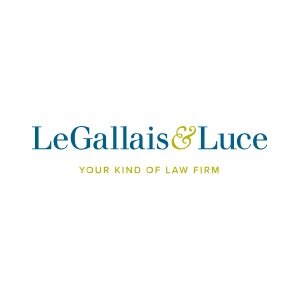Best Toxic Mold Lawyers in Jersey
Share your needs with us, get contacted by law firms.
Free. Takes 2 min.
Or refine your search by selecting a city:
List of the best lawyers in Jersey
About Toxic Mold Law in Jersey
Toxic Mold, also known as black mold, can be a serious issue in homes and buildings in Jersey. It can cause health problems such as respiratory issues, allergies, and other symptoms. Dealing with toxic mold requires understanding of the laws and regulations in Jersey to ensure proper remediation and compensation for damages.
Why You May Need a Lawyer
If you have toxic mold in your home or property in Jersey, you may need a lawyer to help you navigate the legal process. Common situations where you may require legal help include landlord-tenant disputes, insurance claims, property damage lawsuits, and personal injury claims due to mold exposure.
Local Laws Overview
In Jersey, the Landlord and Tenant (Jersey) Law 1982 outlines responsibilities of landlords and tenants regarding mold issues in rental properties. The Public Health (Jersey) Law 1961 also addresses public health concerns related to mold exposure. It is important to consult with a lawyer familiar with these local laws to understand your rights and options.
Frequently Asked Questions
1. What are the common health effects of toxic mold exposure?
Common health effects of toxic mold exposure include respiratory issues, allergies, skin irritation, headaches, and fatigue.
2. Who is responsible for mold remediation in a rental property?
Landlords are typically responsible for mold remediation in rental properties under the Landlord and Tenant (Jersey) Law 1982.
3. Can I sue my landlord for mold exposure?
If your landlord fails to address mold issues in a timely manner, you may have grounds to sue for property damage or personal injury due to mold exposure.
4. How can I prove that mold exposure has caused my health issues?
You may need to consult with a medical professional to document your health issues and establish a link between mold exposure and your symptoms.
5. What should I do if I discover mold in my rental property?
You should notify your landlord in writing about the mold issue and document the situation with photos or videos.
6. Can I be evicted for complaining about mold in my rental property?
Under the Landlord and Tenant (Jersey) Law 1982, landlords cannot evict tenants for complaining about mold or other housing issues.
7. How long do I have to file a lawsuit for mold exposure?
The statute of limitations for filing a lawsuit for mold exposure varies, so it is important to consult with a lawyer as soon as possible.
8. Will my homeowner's insurance cover mold remediation?
Homeowner's insurance policies may provide coverage for mold remediation, but it is important to review your policy and consult with a lawyer to understand your options.
9. What are my rights as a tenant regarding mold issues?
Tenants have the right to live in a safe and habitable property free from mold under the Landlord and Tenant (Jersey) Law 1982.
10. How can a lawyer help me with a toxic mold case?
A lawyer can help you understand your legal rights, gather evidence, negotiate with landlords or insurance companies, and represent you in court if necessary.
Additional Resources
For more information on toxic mold in Jersey, you can contact the Environmental Health Department or Jersey Legal Information Board.
Next Steps
If you need legal assistance with a toxic mold issue in Jersey, it is important to consult with a lawyer who has experience in this area of law. They can help you understand your rights, explore your options, and represent your interests in legal proceedings if needed.
Lawzana helps you find the best lawyers and law firms in Jersey through a curated and pre-screened list of qualified legal professionals. Our platform offers rankings and detailed profiles of attorneys and law firms, allowing you to compare based on practice areas, including Toxic Mold, experience, and client feedback.
Each profile includes a description of the firm's areas of practice, client reviews, team members and partners, year of establishment, spoken languages, office locations, contact information, social media presence, and any published articles or resources. Most firms on our platform speak English and are experienced in both local and international legal matters.
Get a quote from top-rated law firms in Jersey — quickly, securely, and without unnecessary hassle.
Disclaimer:
The information provided on this page is for general informational purposes only and does not constitute legal advice. While we strive to ensure the accuracy and relevance of the content, legal information may change over time, and interpretations of the law can vary. You should always consult with a qualified legal professional for advice specific to your situation.
We disclaim all liability for actions taken or not taken based on the content of this page. If you believe any information is incorrect or outdated, please contact us, and we will review and update it where appropriate.
Browse toxic mold law firms by city in Jersey
Refine your search by selecting a city.










